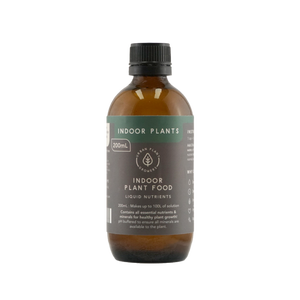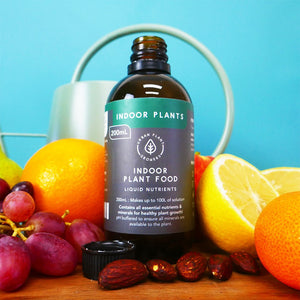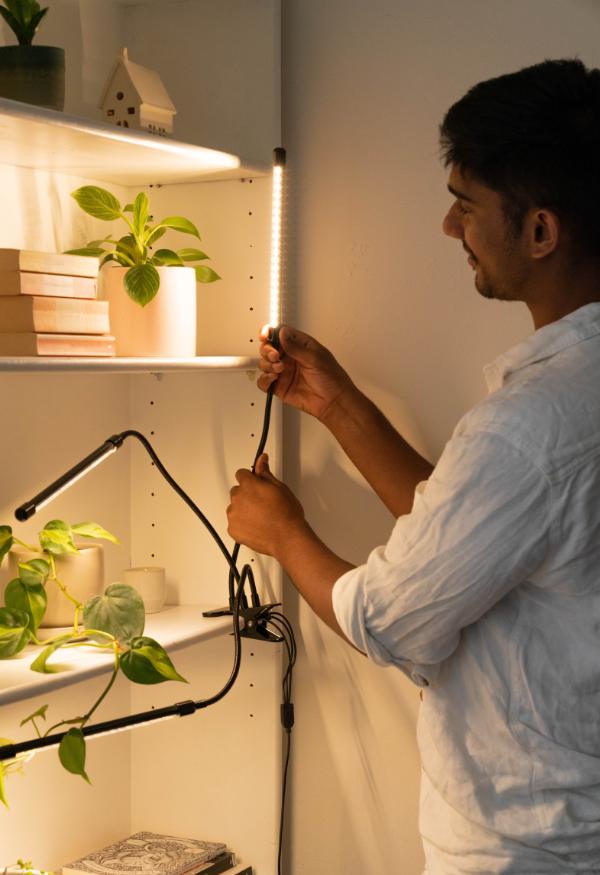Your Cart is Empty



Indoor Plant Food
$10.99
Developed with love by botanical experts. Indoor Plant Food is the perfect concoction to keep your house plants thriving and jiving. Works for soil and hydroponics. Enhances both size and leaves, keeping nourished plants strong and bringing undernourished plants back to life.
Give your plants the boost they deserve!
- Contains the essential minerals that your plants need to grow and thrive.
- Easy to use! Use up to 1 cap full for every 1L.
- pH buffered meaning that your plants can get the most out of all the minerals in the soil or water.
- 200 ml can make up to 100L of nutrients when used for soil.
You can also check out the plant food campaign we did with Steve The Plant here.
WARNING: Do not consume.
How To Use

Step 1:
Shake & measure one capful.

Step 2:
Pour into 1L of water and stir.

Step 3:
Water plant as per usual.

Step 4:
Happy plant!
Specifications
Nutrient composition
Nitrate-Nitrogen (2.11 g/L), Ammonium-Nitrogen 0.074g/L), Phosphorus (0.33 g/L), Potassium (2.18 g/L), Calcium (1.06 g/L), Magnesium (0.63 g/L), Sulfur (0.08 g/L), Iron (0.03 g/L), Manganese (0.007 g/L), Boron (0.003 g/L), Zinc (0.003g/L), Copper (0.002 g/L), Molybdenum (0.0007 g/L)







